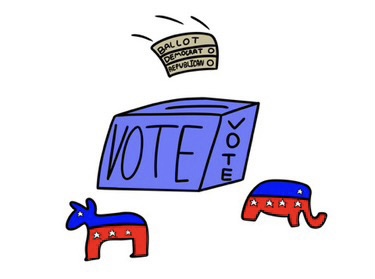
The presidential debate, held in Philadelphia on September 10, was the first for Democrat candidate Kamala Harris, and it served as a stage for her to prove herself to the American public. Shortly after the debate concluded, Kamala Harris held a rally and made numerous posts on social media, stating that she was up for another debate if asked to do another. The Republican candidate, Donald Trump, made statements on the social media platform Truth Social, stating that he won the debate and that there was no need for him to participate in a following debate, since “winners don’t do rematches.”
Later on, he made a statement saying that it was too late to do another debate as voting had already started. For reader clarification, in the 2016 election, the final debate was held a few weeks prior to the election. However, members of the Trump campaign believe that more can be accomplished at rallies, rather than on a national stage. Additionally, they believe that the former president’s decision may not be final on the matter.
But why does any of that matter to the average voter? For many undecided voters, the debates serve as a deciding factor for who to vote for. Choosing not to participate in a third debate is a bad choice for voters. Normally, it wouldn’t matter nearly as much if one party hadn’t changed their candidate; however, with a new candidate in the running, holding another debate would be for the better. How candidates feel about their performance should not be a factor in cutting off one of the main ways voters receive important information regarding candidate policies.
Both candidates continue holding rallies; however, political rallies don’t do enough to inform people about a candidate. On a debate stage, people can see on a national level how candidates compose themselves, which is important to voters. Take the debate from earlier this year between Joe Biden and Donald Trump. Biden’s performance during this debate led to concerns about his health. Something to that extent could not have been revealed at a simple rally. Additionally, candidates’ policies are often compared and contrasted with one another.
Lastly, not everyone will tune into every rally that either Harris or Trump holds to know what the candidates are advocating for. For many voters, politics are very far removed from their lives, and the debates serve as an easy way for people to see the candidates and hear what they have planned for their potential presidency.
In short, not having another presidential debate is a tremendous disservice to the American public. With the conclusion of the vice presidential debate between JD Vance, a Republican, and Tim Walz, a Democrat, there are no further debates for the average person to look forward to. From a voter’s perspective, the decision to not do a third debate is a disservice. It is a poor decision since either candidate has the potential to gain more voters from their success in a third debate. As of this writing, there are no plans to hold a third debate from the Trump campaign. Until the former president agrees to a third debate, it is recommended voters explore each candidate’s policies carefully and make an educated choice on who they should vote for come election day.






